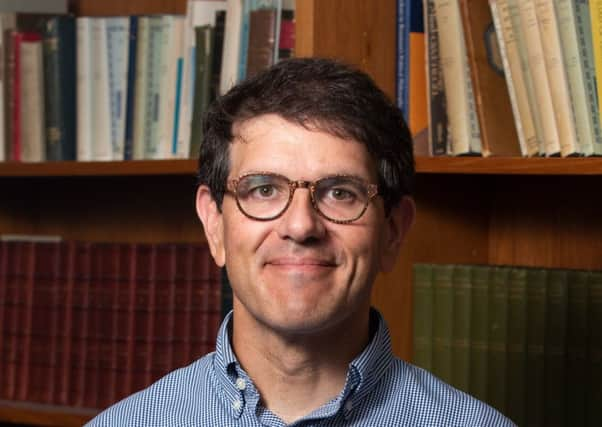Book review: Our Great Purpose: Adam Smith On Living A Better Life, by Ryan Patrick Hanley


Ryan Patrick Hanley has provided a succinct, witty and informative work on the relevance of Adam Smith today, mercifully released from the old “father of capitalism” misrepresentation. It is not a biography – readers wanting that would do well to turn to Nicholas Phillipson’s Adam Smith: An Enlightened Life – but those who want the moral, ethical and practical core of Smith’s work would be well advised to start with Hanley’s jovial, sometimes controversial account of what Smith actually thought. The night book has been Clare Carlisle’s Philosopher Of The Heart, a life of Søren Kierkegaard, the Danish theologian and troublemaker. In some ways the men could not be more different. Smith is pragmatic above all, and never lets the better be the enemy of the best. He is cautious, seeing both sides of an argument, willing to concede where necessary. Kierkegaard is intemperate, almost fundamentalist in his beliefs and although he does see both sides of the argument, he sticks determinedly to what he thinks is right. And yet – and yet – they seem more similar than dissimilar when read together.
Both never married. Of Smith’s romantic life we know less than nothing; Kierkegaard famously broke off an engagement and spent the rest of his life analysing why. But one of the great virtues of Hanley’s book is the centrality of love to Smith’s philosophy and economics. Each chapter begins with a quote from Smith and a modern remodelling of it: so, for example, we read, “Humanity does not desire to be great but to be beloved.” Hanley puts in the sub-headline, “Or: at the end of the day, what we most want is love.” But what, Smith queries, makes us even loveable? What virtues and wisdom can we acquire to make us attractive to others? It is in a kind of exchange that was first set out in Smith’s The Theory Of Moral Sentiments and elaborated into the worldly sphere with Wealth Of Nations. “Kindness is the parent to kindness… the surest way of obtaining it is, by our conduct to show that we really love them [our brethren].” Those who trumpet Smith as the free market guru and the saint of untrammelled capitalism miss the whole point. Indeed, Smith’s concern for how the poor are ignored by the rich shines out in this book. Morality and money were never far removed in Smith’s thinking, and he most often came down on the side of morality.
Advertisement
Hide AdSmith wanted above all tranquillity as the highest virtue, which usually meant the “exchange” of friendship – as with David Hume, with whom he disagreed on metaphysics. There is an embedded pun in Hanley’s book, that the person who advanced business as a moral good, that the rising tide lifted all boats, was allergic to busyness. In this he resembles Blaise Pascal, with that fearful quote that “all of humanity’s problems stem from the inability to sit quietly in a room”. Kierkegaard was tormented by being a public figure, the subject of satirical cartoons, and was made wretched (as he wanted to be) by notoriety and the desire to be lauded.
This relates to another intersection between them. How do we live in the world when we are seen? Smith is clear that being part of the world is a universal good; that we desire recognition and acclaim, whether for making a pin or a fortune. Kierkegaard shies here: he is torn between going off to a rural parish or parading Copenhagen with his cigar and ill-fitting trousers while railing at reviewers. Smith, in Hanley’s very clever little book, comes across as the one you would want to spend dinner with; Kierkegaard comes across as the one you’d like to have an intense late night drink with.
Hanley has done a great service in making Smith less of an ideologue and more of a quester. He turns ideas round like pebbles in a pocket. Of course, he thinks, division of labour is a benefit to all. At the same time, the monotony of labour makes people less happy. He does not offer answers, but he poses the questions with surety. Above all, above riches, above contentment, he asks: how can we be wise, noble and secure? The same questions vexed Kierkegaard: what does it mean to be truly human? Both men were fascinated, even fixated, by Socrates (Kierkegaard wrote a lot about Jesus, Smith, not so much).
Hanley’s book is an excellent primer on the true Smith, the person who thought that fellow feeling was more important than personal gain – although self-interest was not unimportant, nor even a bad thing. Kierkegaard self-dissected himself again and again. Both, strangely, had a sort of metaphorical schizophrenia. Smith, as Hanley shows, wanted not so much the “invisible hand”, but a division of the self to create the “impartial observer”. Kierkegaard struggled with a soul divided between the monastery and the bishop’s palace. Neither really reconciled their paradoxes. But we can learn from both. - Stuart Kelly
Our Great Purpose: Adam Smith On Living A Better Life, by Ryan Patrick Hanley, Princeton University Press, £14.95